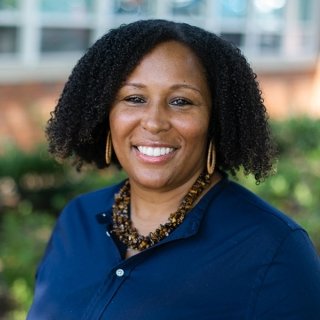By: Natoya Hill Haskins
Highlights:
- The Research in Brief blogs summarize research articles recently published in academic journals, and often align with other initiatives, such as February being Black History Month.
- In this publication, the authors provide decolonizing therapeutic strategies and counselor educator recommendations.
- Summarized in this blog, I describe an intersectional approach of Black liberation theology and narrative therapy that specifically addresses the cultural and spiritual needs of Black clients.

This article focuses on how counselor educators can support counseling trainees as they serve Black clients who are impacted by oppressive religious experiences. Theories such as Black liberation theology (BLT) may offer a supplemental process to support students in effectively meeting the needs of Black clients.
Black Liberation Theory
BLT, an anti-racist theory used to understand the Black experience and its hegemonic foundations, can serve as a guide to understand Black cultural narratives, oppression, and liberation mechanisms. Unfortunately, these historical understandings regarding the Black community have been relegated to seminaries or biblical perspectives, even though it has implications for mental health practice. It is paramount that counselor educators go beyond traditional theories to include approaches such as BLT, which can expand social constructivist perspectives such as applications of narrative therapy, and potentially improve the efficacy of counseling with diverse, spiritual clients.
Narrative counselors who practice from a BLT lens use narratives to help Black clients cultivate agency. BLT and narrative approaches articulate the need for connection and empowerment through the dismantling of oppressive historical, spiritual, and social contexts.
Teaching Black Liberation Narrative Therapy (BLNT)
The goal of this process is threefold: (a) to help Black clients examine the debilitating narratives and dominant discourses that have hindered their experiences, (b) to help Black clients explore their personal dialogue that serve to confirm or disconfirm these narratives, and, (c) to identify ways they can validate self and develop a narrative that is not hindered by oppressive dominant theological discourse. Aspects of BLNT can be infused into theories, group counseling, multicultural, transpersonal, as well as techniques courses using one or more of these five processes.
- Validating Blackness: Anti-Blackness continues to impact the experiences of Black clients. To align with the BLNT approach, educators actively teach trainees how to minimize power within the relationship by allowing the client to be the expert in their own story and by listening to their experiences related to the oppressive narratives with openness and empathy. In addition, the counselor educator can assist trainees learn how to share their own stories of liberation as it relates to dealing with the biblical and church doctrine.
- Examining the Eschatology of the Present: The eschatological roots of the Black Church were grounded in understanding the finiteness of the human condition. Counselor educators can help the counselors in training focus on hope as it relates to liberation, where they help the client to examine present oppression as it relates to their current and future relationships, decisions, and interactions. During the learning process, the trainee can explore how justice cannot only occur with cosmological or apocalyptic expectations, as there is no need to accept oppression now. As such, the counselor educator can encourage the trainees to ask the client the following: “What do you believe about injustice?” and “What can you do to experience liberation or freedom now?”
- Dismantling Oppressive Religious Structures: Dismantling oppressive religious structures can help strengthen the client’s sense of meaning regarding their story. As a result, the counselor educator will want to teach the trainee how to question the client about alternative accounts and experiences of their experience in their church community, “Are there times when you did feel liberated while communing with the Black Church and within the society?” Counselor educators can teach trainees about cultural messaging and how it can and has helped to maintain the current state in Black spiritual communities.
- Creating New Values Towards Liberation: According to BLT, courage is necessary to circumvent socially constructed notions or stereotypes that the client may have related to feeling powerless. The counselor educator can teach trainees to help the client explore marginalizing social constructions related to being a member of the Black Church and the Black community, and the impacts on their mental health. To illuminate these areas, the counselor educator can have trainees ask the following questions: “When do you feel like you are oppressed related to church?” and “With whom do you feel oppressed?”
- Creating Opportunities for Reconciliation: The counselor educator can describe how the trainee can specifically validate the Black client’s desire to advocate and to stand alongside them as they advocate in their communities. Counselor educators can share how trainees can help clients in counseling solidify the new narrative and reconciled identity that may include other Black individuals who have triumphed over marginalizing ideology.
Implications & Conclusions
By utilizing this integrative model, counselors and trainees have an operative framework through which they can provide therapy that empowers, uplifts, and validates Black clients. However, counselor educators may have limited training in Black liberation and how it can be used in clinical practice. Counselor educators need to help trainees focus on how the client makes meaning of their liberatory experience and planned steps for maintaining their growth. Additionally, it is important to consider the various religious beliefs of Black clients and how parts of this approach may be useful for different clients. Empirical studies are needed to examine the effectiveness of BLNT with clients and its clinical outcome.
Reference
Haskins, N. H., Harris, J. A., Parker, J., Nambiar, A., & Chin, P. (2023). Teaching anti-racist counseling theories: Black liberation narrative therapy. Counselor Education and Supervision, 00, 1–13. https://doi.org/10.1002/ceas.12286
If you have any comments or questions about this post, please email Youth-Nex@virginia.edu. Please visit the Youth-Nex Homepage for up to date information about the work happening at the center.

Author Bio: During her 20-year career in counseling and counselor education, Natoya Hill Haskins has been committed to equity and inclusion. Haskins developed the Social Justice and Diversity Research Fellows Program for graduate students, with the aim of addressing research training disparities for students of color who are interested in conducting equity and social justice research. In addition, she has created affinity group spaces for African American women in counselor education. Haskins has over 40 publications in the areas of womanist clinical applications and social justice competence in P-20 schools. Haskins is the 2022-2023 president of the Association of Counselor Education and Supervision. Prior to that, she served as the president of the Southern Association of Counselor Education and Supervision (2017-2018).
